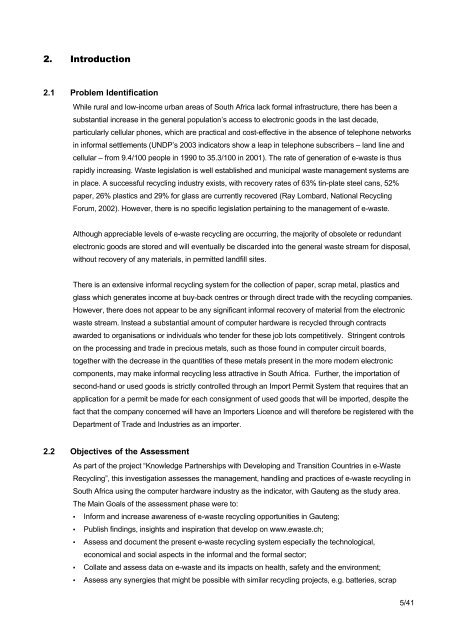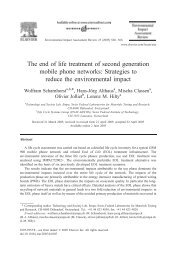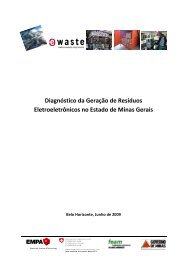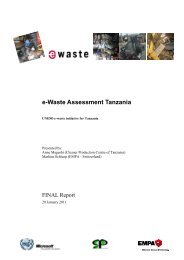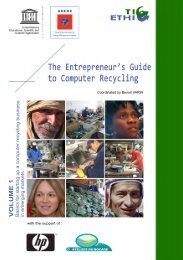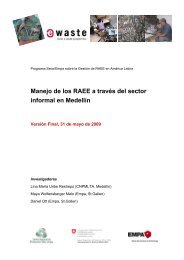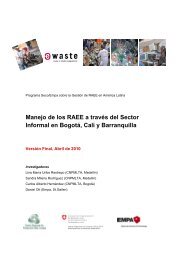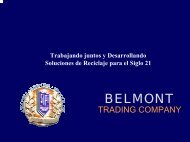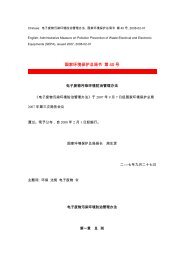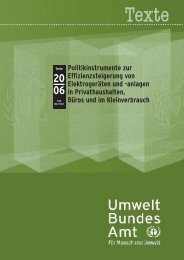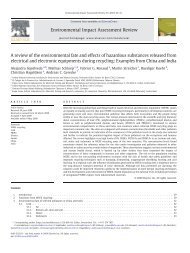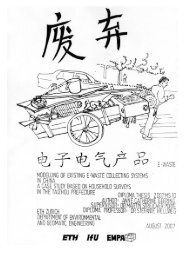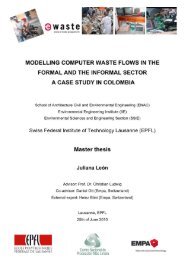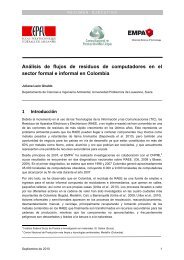E-WASTE ASSESSMENT IN SOUTH AFRICA - e-Waste. This guide
E-WASTE ASSESSMENT IN SOUTH AFRICA - e-Waste. This guide
E-WASTE ASSESSMENT IN SOUTH AFRICA - e-Waste. This guide
You also want an ePaper? Increase the reach of your titles
YUMPU automatically turns print PDFs into web optimized ePapers that Google loves.
2. Introduction2.1 Problem IdentificationWhile rural and low-income urban areas of South Africa lack formal infrastructure, there has been asubstantial increase in the general population’s access to electronic goods in the last decade,particularly cellular phones, which are practical and cost-effective in the absence of telephone networksin informal settlements (UNDP’s 2003 indicators show a leap in telephone subscribers – land line andcellular – from 9.4/100 people in 1990 to 35.3/100 in 2001). The rate of generation of e-waste is thusrapidly increasing. <strong>Waste</strong> legislation is well established and municipal waste management systems arein place. A successful recycling industry exists, with recovery rates of 63% tin-plate steel cans, 52%paper, 26% plastics and 29% for glass are currently recovered (Ray Lombard, National RecyclingForum, 2002). However, there is no specific legislation pertaining to the management of e-waste.Although appreciable levels of e-waste recycling are occurring, the majority of obsolete or redundantelectronic goods are stored and will eventually be discarded into the general waste stream for disposal,without recovery of any materials, in permitted landfill sites.There is an extensive informal recycling system for the collection of paper, scrap metal, plastics andglass which generates income at buy-back centres or through direct trade with the recycling companies.However, there does not appear to be any significant informal recovery of material from the electronicwaste stream. Instead a substantial amount of computer hardware is recycled through contractsawarded to organisations or individuals who tender for these job lots competitively. Stringent controlson the processing and trade in precious metals, such as those found in computer circuit boards,together with the decrease in the quantities of these metals present in the more modern electroniccomponents, may make informal recycling less attractive in South Africa. Further, the importation ofsecond-hand or used goods is strictly controlled through an Import Permit System that requires that anapplication for a permit be made for each consignment of used goods that will be imported, despite thefact that the company concerned will have an Importers Licence and will therefore be registered with theDepartment of Trade and Industries as an importer.2.2 Objectives of the AssessmentAs part of the project “Knowledge Partnerships with Developing and Transition Countries in e-<strong>Waste</strong>Recycling”, this investigation assesses the management, handling and practices of e-waste recycling inSouth Africa using the computer hardware industry as the indicator, with Gauteng as the study area.The Main Goals of the assessment phase were to:▪ Inform and increase awareness of e-waste recycling opportunities in Gauteng;▪ Publish findings, insights and inspiration that develop on www.ewaste.ch;▪ Assess and document the present e-waste recycling system especially the technological,economical and social aspects in the informal and the formal sector;▪ Collate and assess data on e-waste and its impacts on health, safety and the environment;▪ Assess any synergies that might be possible with similar recycling projects, e.g. batteries, scrap5/41


